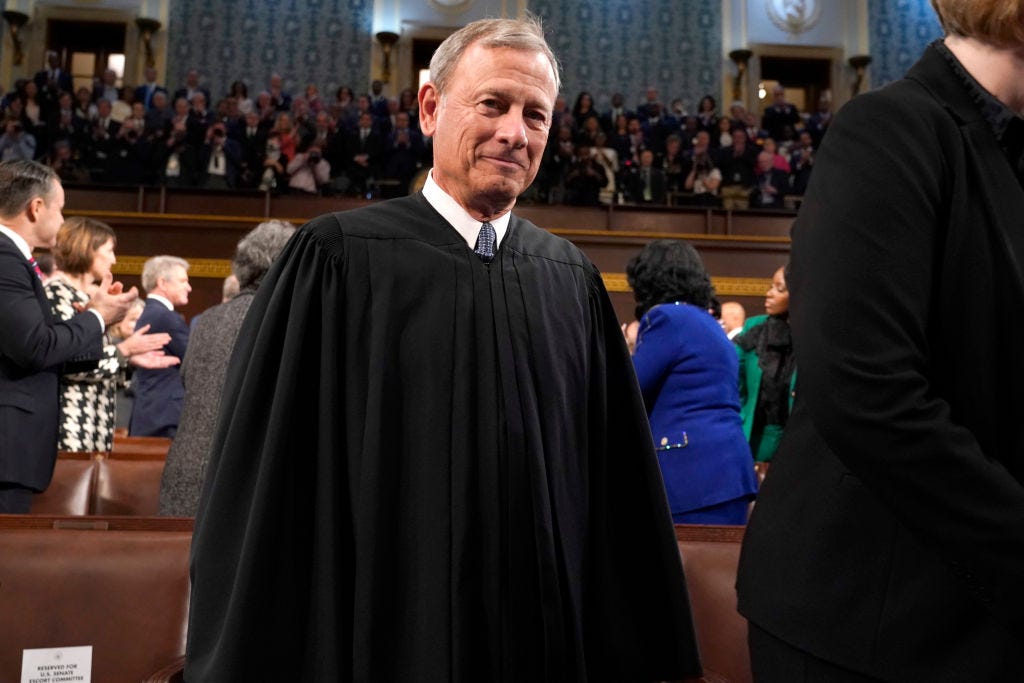John Roberts' Affirmative Action Carveout Gives the Game Away
The leader of the most conservative Supreme Court in generations is determined to protect what really matters to him.
There is little to say about the composition of the Supreme Court at this point. Of the nine unelected justices who serve on it, six of them are Republicans. The proper nomenclature is “conservatives,” but come on — they were nominated by Republican presidents, trained by Republican think tanks, and paid by Republican billionaires; I think we can just call it like it is at this point. The Court is an unelected legislative body that is often directly beholden to partisan interests. Right now, it is controlled 6-3 by the Republicans, something that isn’t going to change anytime soon without an act of God or a determined individual or group of individuals willing to —
Sorry. We’re back. Don’t know what happened there. Anyway, today the Supreme Court ruled on two cases at Harvard and UNC that concerned those universities’ affirmative action policies. The votes were split along party (sorry, ideological) lines, 6-3 and 6-2 (Justice Ketanji Brown Jackson recused herself from the Harvard vote as she was once on a board at Harvard). The ruling is, once again, a major victory for the various conservative interest groups who have made it their mission to walk back basically every significant progressive ruling the court has made. Yadda yadda. By now you get the point. The only difference in these individual tragedies of government injustice is in the small idiosyncrasies of whatever the unelected people on the court write in their rulings (the dissents, while great for Instagram stories, are about as consequential as a losing Oscar nominee’s unheard acceptance speech).




